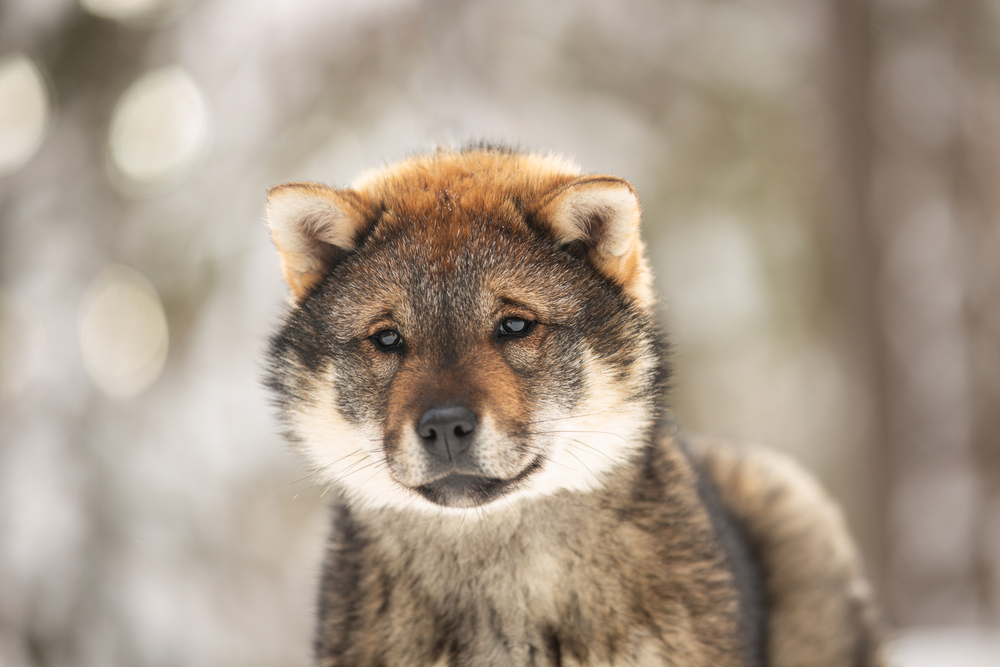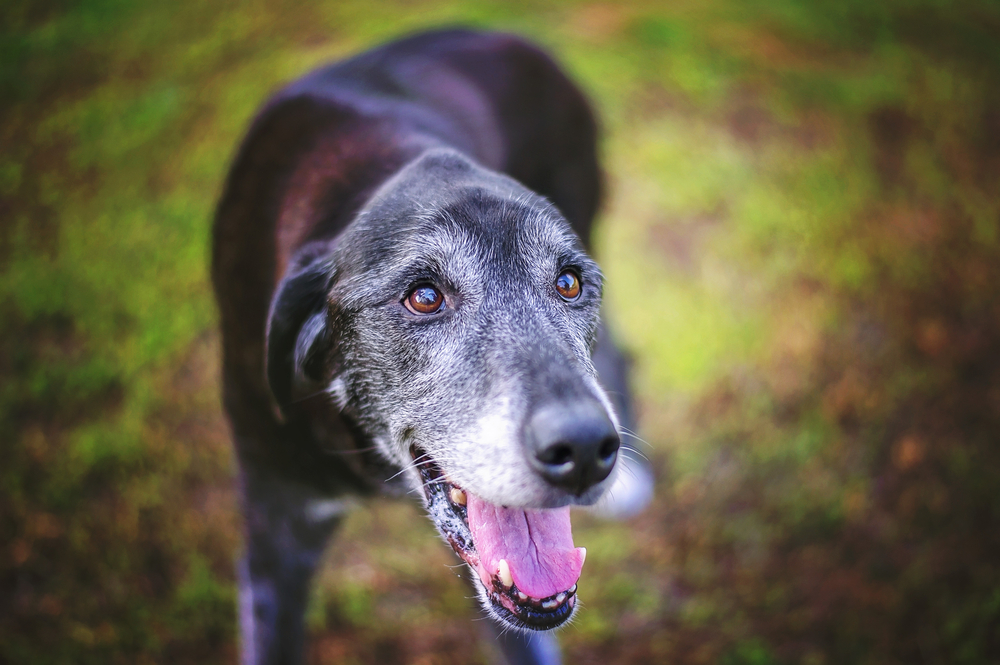Saying goodbye to a beloved pet is one of the hardest things any dog owner can face. As dogs age, their bodies start to slow down, and eventually, they show signs that their time with us is nearing an end. Recognizing these signs can be heartbreaking, but it’s also a chance to make their final days as comfortable and loving as possible. Here are 15 signs your senior dog may be nearing the end of their journey.
1. Loss of Appetite Becomes Persistent

One of the first signs that something is wrong is when your dog stops eating, even their favorite treats. This lack of appetite may be due to a slowing metabolism or a loss of interest in food altogether. They may also drink less water, leading to dehydration and further weakness. While occasional appetite loss can happen, consistent refusal to eat is often a serious red flag.
2. Difficulty Breathing Becomes Noticeable

If your senior dog begins to pant excessively, struggle to catch their breath, or breathe irregularly, it may signal a decline. Labored breathing often happens as organs weaken or if there’s fluid buildup in the lungs. You might notice shallow or rapid breaths, or pauses between breaths that seem unnatural. It’s a clear sign that their body is having trouble keeping up with basic functions.
3. Mobility Issues Take Over
 Senior dogs often develop arthritis or joint problems, but it could indicate more than old age if they start struggling to stand, walk, or climb stairs. You may notice them slipping, falling, or avoiding movement altogether because it’s too painful. Weakness in their legs can make it hard to even get up for a drink of water or to go outside. This immobility can be a sign that their body is shutting down.
Senior dogs often develop arthritis or joint problems, but it could indicate more than old age if they start struggling to stand, walk, or climb stairs. You may notice them slipping, falling, or avoiding movement altogether because it’s too painful. Weakness in their legs can make it hard to even get up for a drink of water or to go outside. This immobility can be a sign that their body is shutting down.
4. They Sleep Far More Than Usual

Dogs naturally sleep more as they age, but excessive sleeping or seeming disinterested in waking up can be a sign they’re preparing to let go. Your dog may spend most of the day in one spot, not moving much or acknowledging activity around them. It’s their body’s way of conserving energy as they approach their final days. While peaceful, it can be a deeply emotional sign for owners.
5. They Start Hiding or Seeking Solitude

If your dog suddenly retreats to corners, under furniture, or other quiet places, they may be instinctively isolating themselves. This behavior is common in animals nearing the end, as they seek solitude to cope with their discomfort. Even the most social dogs might stop wanting to cuddle or interact with their family. It’s their way of processing what’s happening, and respecting their space while offering comfort is important.
6. Their Weight Drops Rapidly

A noticeable decline in your dog’s weight, even if they’re eating occasionally, is often a concerning sign. Muscle wasting, or cachexia, is common in dogs nearing the end of life as their bodies lose the ability to process nutrients. You might also see their ribs and spine become more prominent as their body grows weaker. This unintentional weight loss is usually irreversible and part of the dying process.
7. Vomiting or Diarrhea Becomes Frequent

Digestive issues like vomiting or diarrhea are common in dogs nearing the end, as their organs struggle to function properly. These symptoms may occur alongside a loss of appetite and dehydration, making them appear even weaker. You might notice their stool becoming loose, dark, or containing blood. While distressing to witness, it’s often part of their body shutting down.
8. Loss of Bladder or Bowel Control Develops

Senior dogs often lose control over their bladder and bowels as their muscles weaken and their body declines. Accidents might happen frequently, even if they were always well-trained. This can be frustrating for both you and your dog, but it’s not their fault—it’s simply part of their aging process. Offering support with pads or frequent clean-ups can make them more comfortable during this time.
9. Vision and Hearing Start to Fade Completely

While many older dogs experience some decline in their senses, sudden or complete loss of sight and hearing can indicate their body is nearing its end. You may notice them bumping into furniture, ignoring commands, or acting confused in familiar surroundings. They might seem distant or unresponsive, as if they’re retreating into their own world. These changes are often part of their overall decline.
10. Their Heart Rate Slows Noticeably

As dogs near the end, their heart rate and pulse may become slower or weaker. You might notice their chest rising and falling more faintly, or their pulse might be harder to detect. Cold extremities, like their paws and ears, can also signal reduced circulation. This decline in vital signs is a clear indicator that their body is preparing to shut down.
11. They Appear Disoriented or Confused

Disorientation, such as wandering aimlessly, staring into space, or forgetting where they are, is common in dying dogs. This confusion might be due to cognitive decline or failing organs affecting their brain. They may even stop responding to their name or seem unaware of your presence. While heartbreaking to witness, offering gentle reassurance can help them feel safe.
12. Pain Becomes More Noticeable

Chronic pain, such as whining, whimpering, or flinching when touched, can become more pronounced in a dying dog. They might also shift uncomfortably, unable to find a position that eases their pain. Limping, stiffness, or a reluctance to move could signal that they’re struggling more than before. Pain management with the help of a vet is essential to keep them comfortable.
13. They Stop Grooming Themselves

If your dog was once meticulous about grooming but now appears unkempt, it’s a sign they’re losing the energy to care for themselves. You might notice matted fur, dirty eyes, or an overall disheveled appearance. This neglect of self-care is often a sign that their body is too weak to maintain normal routines. Helping them stay clean and comfortable can make a big difference in their final days.
14. They Lose Interest in Everything They Once Loved

When your dog no longer shows excitement for walks, toys, or even your affection, it’s a sign they’re withdrawing from life. They may lie still instead of greeting you at the door or ignore their favorite squeaky toy. This loss of joy and energy can be one of the saddest signs to witness. It’s a clear indicator that they’re ready to let go, even if it’s hard for us to accept.
15. They Seem to Say Goodbye in Their Own Way

Many dogs have an uncanny ability to sense when their time is near, and they may offer subtle farewells. Some will seek more affection, resting their head in your lap or gazing at you for long moments. Others may distance themselves, retreating to a quiet spot as if to spare you the pain. These moments, while deeply emotional, are a final testament to the bond you’ve shared.
